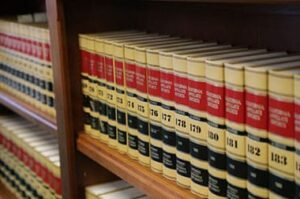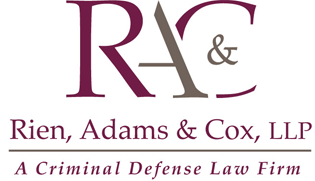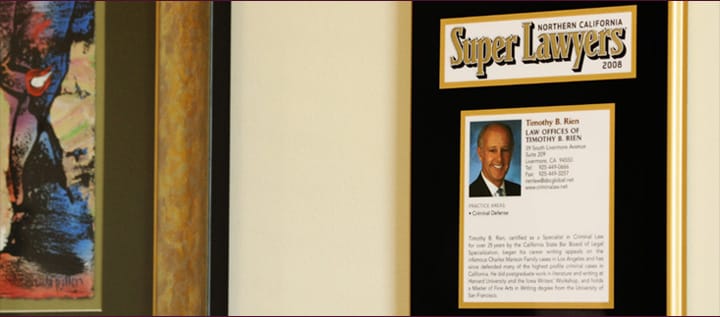Frequently Asked Questions
Can a lawyer prove self-defense in a weapon crime case?
A lawyer can prove self-defense in a weapon crime case by presenting evidence that demonstrates the defendant acted to protect themselves from imminent harm, aligning with the legal standards for self-defense in that jurisdiction.
What are the common gun crime defense strategies?
Common gun crime defense strategies include challenging the legality of the search and seizure, asserting self-defense claims, questioning the intent behind possession, and highlighting potential violations of the defendant's rights during arrest or interrogation.
What are the penalties for illegal weapon possession charges?
The penalties for illegal weapon possession charges can include significant fines, imprisonment, and a permanent criminal record. The severity of the punishment often depends on the specifics of the case and the type of weapon involved.
Can a lawyer represent me in gun crime appeals?
A lawyer can represent you in gun crime appeals. Their expertise is crucial in navigating the complexities of the legal system and ensuring your rights are protected throughout the appeals process.
What evidence do gun crime lawyers look for?
Gun crime lawyers look for various types of evidence, including eyewitness accounts, physical evidence like firearms or ammunition, surveillance footage, and any relevant documentation that can support a strong defense against the charges.
Can a defense attorney reduce weapon-related sentence lengths?
A defense attorney can potentially reduce weapon-related sentence lengths by leveraging legal strategies, negotiating plea deals, and presenting mitigating circumstances that may influence the court's decision. Skilled representation is crucial in achieving the best possible outcome.
How does a lawyer challenge weapon forensic evidence?
A lawyer challenges weapon forensic evidence by scrutinizing the methods used in evidence collection, examining the qualifications of forensic experts, and questioning the reliability of the techniques employed, aiming to demonstrate potential inaccuracies or biases in the findings.
Can a lawyer suppress weapon evidence in court?
A lawyer can suppress weapon evidence in court if it was obtained unlawfully, such as through an illegal search or violation of the defendant's rights. This legal strategy aims to challenge the admissibility of the evidence during trial.
What are the best defense strategies for weapon crimes?
The best defense strategies for weapon crimes include challenging the legality of the search and seizure, proving lack of intent to use the weapon unlawfully, and demonstrating compliance with relevant gun laws. Each case requires a tailored approach for effective representation.
What are common defenses for weapon possession charges?
Common defenses for weapon possession charges include proving lack of knowledge of the weapon's presence, demonstrating lawful ownership, or challenging the legality of the search and seizure that uncovered the weapon.
How does a defense attorney prepare for a weapon trial?
A defense attorney prepares for a weapon trial by thoroughly reviewing evidence, consulting experts, and developing a strategic defense plan tailored to the specifics of the case, ensuring the client's rights are protected throughout the legal process.
What is the role of a defense attorney in weapon cases?
The role of a defense attorney in weapon cases is to provide expert legal representation, protect the rights of the accused, and develop effective defense strategies against firearm-related charges. They navigate complex laws and advocate for their clients throughout the legal process.
How does a lawyer defend against illegal gun possession?
A lawyer defends against illegal gun possession by challenging the evidence, questioning the legality of the search and seizure, and demonstrating that the client was unaware of the firearm's presence or ownership.
How can a lawyer defend against gun charges?
A lawyer can defend against gun charges by challenging the evidence, questioning the legality of the search and seizure, and presenting mitigating factors that may reduce the severity of the charges or demonstrate the lack of intent to commit a crime.
What evidence is needed for a successful weapon defense?
The evidence needed for a successful weapon defense includes documentation of the circumstances surrounding the incident, witness testimonies, and any relevant physical evidence, such as the weapon's condition and ownership history, to support your case effectively.
Can a defense attorney appeal a weapon conviction?
A defense attorney can appeal a weapon conviction if there are valid grounds, such as legal errors during the trial or insufficient evidence. This process can help challenge the conviction and potentially lead to a reversal or a new trial.
What are the benefits of hiring a weapon crime lawyer?
The benefits of hiring a weapon crime lawyer include expert knowledge of firearm laws, personalized defense strategies, and the ability to navigate complex legal proceedings. This representation can significantly impact the outcome of your case and protect your rights.
Can a lawyer reduce gun crime penalties?
A lawyer can potentially reduce gun crime penalties by employing effective defense strategies, negotiating plea deals, or advocating for alternative sentencing options, depending on the specifics of the case and the evidence presented.
What are the penalties for weapon crimes in my state?
The penalties for weapon crimes in your state can vary significantly depending on the specific offense, ranging from fines and probation to lengthy prison sentences. It's essential to consult with a knowledgeable attorney to understand the potential consequences in your situation.
How does a lawyer investigate a weapon crime scene?
A lawyer investigates a weapon crime scene by reviewing evidence, interviewing witnesses, and collaborating with forensic experts to build a comprehensive understanding of the incident, ensuring effective defense strategies for their client.
Can a defense attorney claim self-defense in a trial?
A defense attorney can indeed claim self-defense in a trial. This legal argument asserts that the defendant acted to protect themselves from imminent harm, which can be a crucial part of their defense strategy.
Can a lawyer negotiate a plea deal for weapon crimes?
A lawyer can negotiate a plea deal for weapon crimes. Skilled legal representation is crucial in these cases, as an experienced attorney can advocate for reduced charges or lesser penalties, potentially leading to a more favorable outcome for the client.
What factors influence a self-defense claim?
The factors that influence a self-defense claim include the immediacy of the threat, proportionality of the response, the perceived danger, and whether the defender had a reasonable belief that force was necessary to prevent harm.
How can evidence support a defense strategy?
Evidence can significantly bolster a defense strategy by providing factual support that may challenge the prosecution's case, establish reasonable doubt, or demonstrate the defendant's innocence. This can include witness testimonies, surveillance footage, or expert analyses that validate the defense's claims.
What are alternatives to weapon crime charges?
Alternatives to weapon crime charges include plea bargains, diversion programs, or reduced charges, which may involve counseling or community service. These options can help mitigate the consequences of a firearm-related offense while still addressing the underlying issues.
How do plea deals affect weapon crime cases?
Plea deals can significantly impact weapon crime cases by allowing defendants to negotiate lesser charges or reduced sentences in exchange for a guilty plea. This can lead to more favorable outcomes compared to going to trial.
What documentation is required for weapon defense?
The documentation required for weapon defense typically includes any arrest records, police reports, witness statements, and evidence of firearm ownership or permits. This information helps build a strong defense strategy tailored to your case.
What should I know about sentencing guidelines?
Sentencing guidelines are important frameworks that help determine the appropriate punishment for criminal offenses, including gun-related charges. They consider factors like the severity of the crime and the defendant's criminal history to ensure fair and consistent sentencing.
How can previous convictions impact my defense?
Previous convictions can significantly impact your defense by potentially influencing the severity of penalties and the perception of your character in court. A skilled attorney can help mitigate these effects and build a strong defense strategy.
What role does intent play in weapon offenses?
The role of intent in weapon offenses is crucial, as it determines the severity of the charges. Prosecutors must establish whether the individual intended to use the weapon unlawfully, which can significantly impact the outcome of the case.





